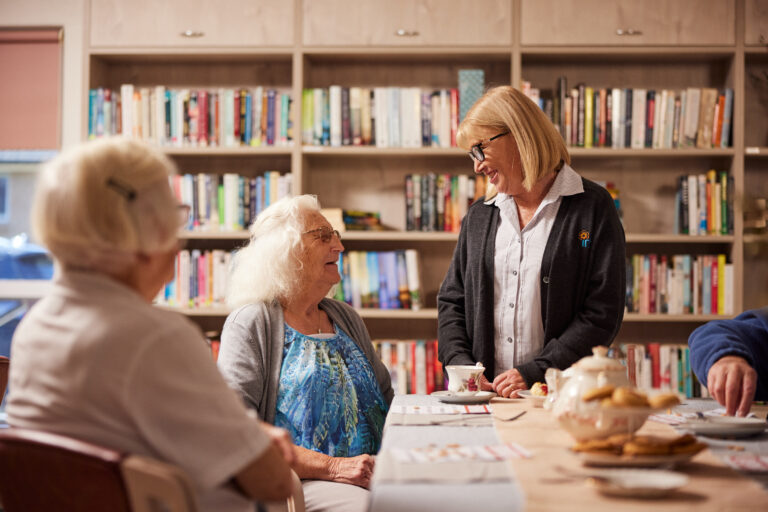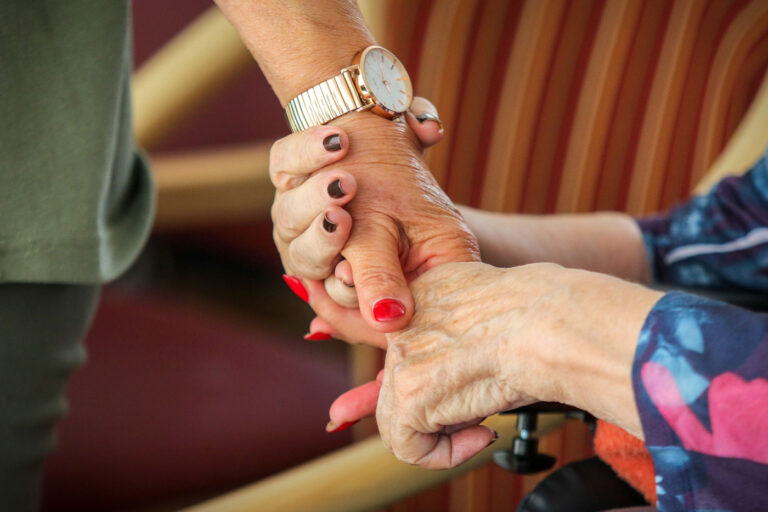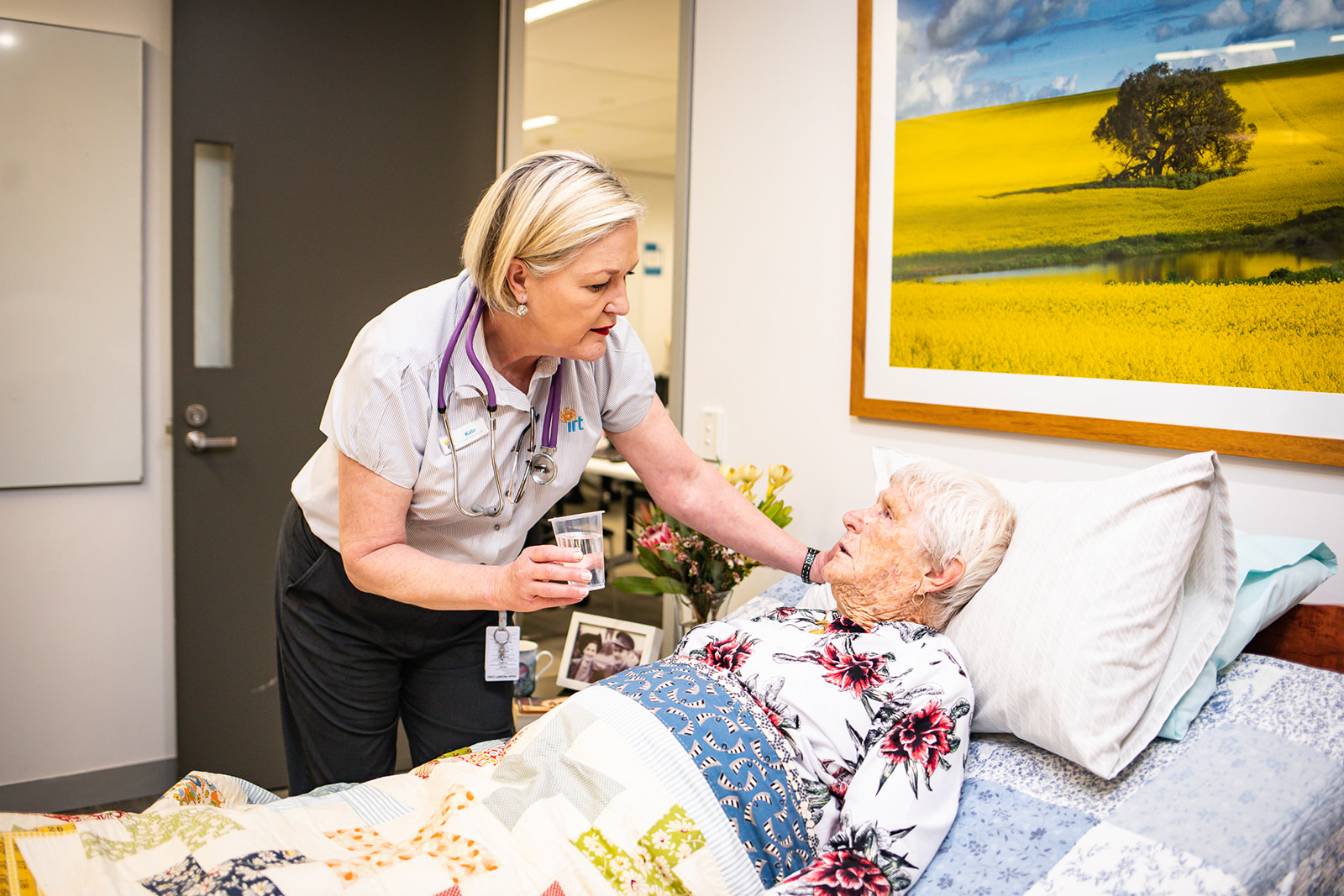What are the early signs of dementia?
In this article we look at some of the common warning signs of dementia and typical dementia symptoms to look out for.

Dementia is the term used to describe a collection of symptoms that are caused by disorders affecting the brain. It includes a loss of memory, intellect, rationality, social skills and physical functioning that affects a person’s ability to perform everyday tasks.
There are many different forms of dementia, however the most common types are Alzheimer’s disease, Vascular dementia, Dementia with Lewy bodies, Frontotemporal Lobar Degeneration, Huntington's disease, Alcohol related dementia (Korsakoff's syndrome) and Creutzfeldt-Jakob disease. You can read more about the different types of dementia and how they affect the brain in different ways here.
Dementia can happen to anyone, but it’s more common in people over the age of 65. However, while most people with dementia are older, it is important to remember that not all older people get dementia and it’s not a normal part of ageing.
According to Dementia Australia, the early signs of dementia are very subtle and may not be immediately obvious. However, there are some common warning signs to look out for.
Here are 10 early signs of dementia:
1. Recent memory loss
One of the first signs and symptoms of dementia is usually when a person’s memory starts to decline, particularly when trying to remember very recent events or fundamental things like where a person lives, or their partner’s name. It’s normal to forget things like appointments or an item when grocery shopping, and remember them later. However a person with dementia may forget things more often and not remember them at all. They may forget their home address, may not recall having a cousin, or have trouble remembering what they had for breakfast.
2. Misplacing items
We’ve all been guilty of misplacing our wallet or keys in the past. However, a person with dementia may often put things in inappropriate places and forget they did it. For example, they may put the junk mail in their sock draw, or put the TV remote in the fridge, and have no recollection of doing it.
3. Changes in personality
As dementia progresses, it can cause noticeable personality changes. A person can suddenly become more suspicious, paranoid or fearful than they’ve ever been before. For example, they may become extremely worried that the neighbour is watching them or fearful that someone is trying to break into their home every night, or indeed is already in the house hiding. On the other hand, they may be the opposite and become more extraverted or gregarious than they were previously.
4. Difficulty performing usual tasks
A person with dementia might not remember how to do basic and familiar tasks they’ve always done, like getting dressed for the day or turning the television on. They may even forget how to prepare a meal they’ve cooked for years, or if they do remember, they may not only forget to serve it, but also forget they made it. While it can be difficult for a person living with dementia to perform activities they may have once loved, the need to do so often isn’t diminished. Therefore it’s important to find activities that engage them and bring pleasure to their everyday live.
5. Problems finding the right words
When having a conversation, we can all get a little tongue-tied and have trouble finding the words we want to use from time to time. However a person with dementia may have difficulty with very simple words and forget them more frequently than the average person does. This can become even more noticeable if you’re around them on a regular basis.

6. Poor judgement
A person with dementia may lose their ability to make sound judgements on things like distance or direction, particularly when out and about in the community or when driving a car. They may underestimate how much time they need to run an errand, how far they need to travel, or get easily confused with simple directions.
7. Loss of initiative
Someone who is usually very social or engaged may become very passive and require reminders or prompting to become involved in things they’d normally participate in. This can include things like starting to eat dinner by themselves, losing interest in hobbies they used to enjoy like gardening or reading, or retreating to themselves when family members come to visit.
8. Disorientation
People with dementia can become lost or confused in their own street where they’ve lived all their life, not know where they are, how they got there or how to get back home. This is one of the reasons why many residential aged care centres, including IRT, have introduced environmental design principles into their dementia care facilities to help residents with orientation and wayfinding.
9. Sudden changes in mood
Everyone can be moody from time to time. However a person with dementia can have very rapid mood swings where one minute they are very calm, then all of a sudden they’re crying or being very angry for no apparent reason. Many care providers use techniques such as music therapy to assist with sudden mood changes in people living with dementia. Music has the ability to relieve emotional and physical stress, control emotional functions, improve mood and provide a sense of relief.
10. Problems with thinking
A person with dementia can have trouble concentrating on things that used to be very common for them to think about, such as their banking or finances. They may become confused by money and numbers or what to do with them. They may also have problems with abstract thinking.
Did you know?
- According to the Australian Bureau of Statistics, dementia is the second leading cause of death in Australia.
- In 2021, there are an estimated 459,000 Australians living with dementia.
- It affects almost 50 million people worldwide, which is predicted to increase to 131.5 million by 2050.
- Females are more at risk of dementia related fatalities and account for 64.5% of all dementia related deaths.
- Three in ten people over the age of 85 have dementia.
- In 2020, dementia cost Australia more than $15 billion.
- Every three seconds, someone in the world develops dementia.
- People with dementia account for 52% of all residents in residential aged care centres.
Remember, only a medical practitioner such as a doctor or specialist can diagnose dementia. If an official diagnosis has been made, there is a lot of support available to help you and your loved ones manage. A good place to start is by calling the National Dementia Helpline on 1800 100 500.

Does your loved one need support?
IRT has been supporting older Australians and their families with compassionate care for more than 50 years with aged care centres in NSW, Qld and the ACT. If your loved one needs warm and personalised care you can trust, we'd be more than happy to help.
Find out moreYou may also like
Types of palliative care
Understand the difference between palliative care and end of life care and types of palliative care treatments and support available.
What is aged care and 5 signs it's time to consider it
This guide breaks down some of the key aged care services offered and looks at some of the signs that indicate you might need them.


